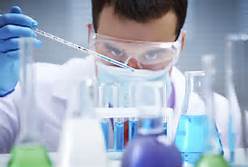 |
Facts
Duration: 1 semester (6 weeks)
Credits: 3 ECTS
Contact Hours: 36
Hours: 108
|
Main Objectives
The course introduces types of measurement in biomedicine and their use, developing students’ research skills. In the process of studying the discipline, students will acquire skills in performing continuous multivariate studies with registration, preservation of data and its use for the purposes of management and control in biomedicine.
Learning Outcomes
As a result of the course, a student must:
- know: controlled variables measuring methods and techniques, measurement and converters classification;
- be able to: apply the appropriate areas of physics and mathematics to assess the quality of measurements for evaluating the integral indices of measurement; use software visualization tools of measurable indicators in biomedicine;
- master: interdisciplinary knowledge synthesis techniques, skills in measurement and control in biomedicine, data analysis skills of the studied systems.
Professor
Mikhail Svetlik
Course annotation
Methods of measurement and control in biomedicine (3 European Credits)
Taught by: Assoc. Prof Mikhail Svetlik
The course introduces types of measurement in biomedicine and their use, developing students’ research skills. In the process of studying the discipline, students will acquire skills in performing continuous multivariate studies with registration, preservation of data and its use for the purposes of management and control in biomedicine.
The module covers the following topics:
· General ideas about measurements and control systems in biomedicine.
· Classification of biomedical measurement systems, measurement techniques in biomedicine.
· Data storing measurement and visualization of recorded indices.
· Control and monitoring in biomedicine.
Learning objectives
As a result of the course, a student must:
- know: controlled variables measuring methods and techniques, measurement and converters classification;
- be able to: apply the appropriate areas of physics and mathematics to assess the quality of measurements for evaluating the integral indices of measurement; use software visualization tools of measurable indicators in biomedicine;
- master: interdisciplinary knowledge synthesis techniques, skills in measurement and control in biomedicine, data analysis skills of the studied systems.
Content of the module
Researchers in the field of biomedicine must have knowledge about dimensions, forms and means of acquiring data, and measurement history. The course provides information about measurement types in biomedicine and measurement features of biological objects. It provides an overview of data collection and monitoring systems, the origins of principles, measurement features in control systems, and methods of obtaining data from measurements. A classification of biomedical systems and transducers. The basic measurement techniques in biomedicine, classification methods, physical principles, biomedical data storage standards, types of measured characteristics and methods of visualization.
Overview of tasks and lectures
The course involves 8 two-hour lectures, 1 two-hour seminar, 4 three-hour laboratory works, and individual project totaling 6 hours.
Topics of lectures:
1. Introduction. Living beings and their parameters.
2. Common ideas about measurement in biomedicine.
3. Basic concepts of control systems in biomedicine.
4. Classification of biomedical measurements systems.
5. Measurement methods in biomedicine.
6. General means of biomedical data storage.
7. General means of biomedical data visualization.
8. Management and monitoring tools in biomedicine.
Topics of laboratory works:
1. The numbering systems, Boolean algebra.
2. Designing a system of physical quantity conversion.
3. Designing data collection system.
4. Designing an application program for data collection from data acquisition devices.
5. An application for registration of physical parameter and its visualization (individual project).
Topic of seminar:
1. Test your skills and setting goals.
Students’ practical classes involve seminars and individual laboratory works on the modelling and prototyping of given objects using computers and a specialized software package.
Position within the programme
This is a unique course in the programme that concerns the study of physics methods and non-invasive methods for studying living organisms. The knowledge and skills are important for doctors and laboratory personnel for registering various parameters and the management of living systems. This module provides a framework for further practical activity.
Teaching format
Structure
The course is scheduled for 1 semester. The course involves 108 hours, including 36 hours in the classroom. The length of the course is 6 weeks (8 two-hour lectures, 1 two-hour seminar, 4 three-hour laboratory works, and individual project totaling 6 hours). Lectures and seminars are conducted in a multimedia auditorium, equipped with technical means for video conferencing, as well as presentation and interactive equipment. Laboratory works are organized in a computer lab.
Grading
The form of final assessment is credit test. The credit test requires satisfactory performance of individual case studies and participation in the discussion of seminar topics.
.png)